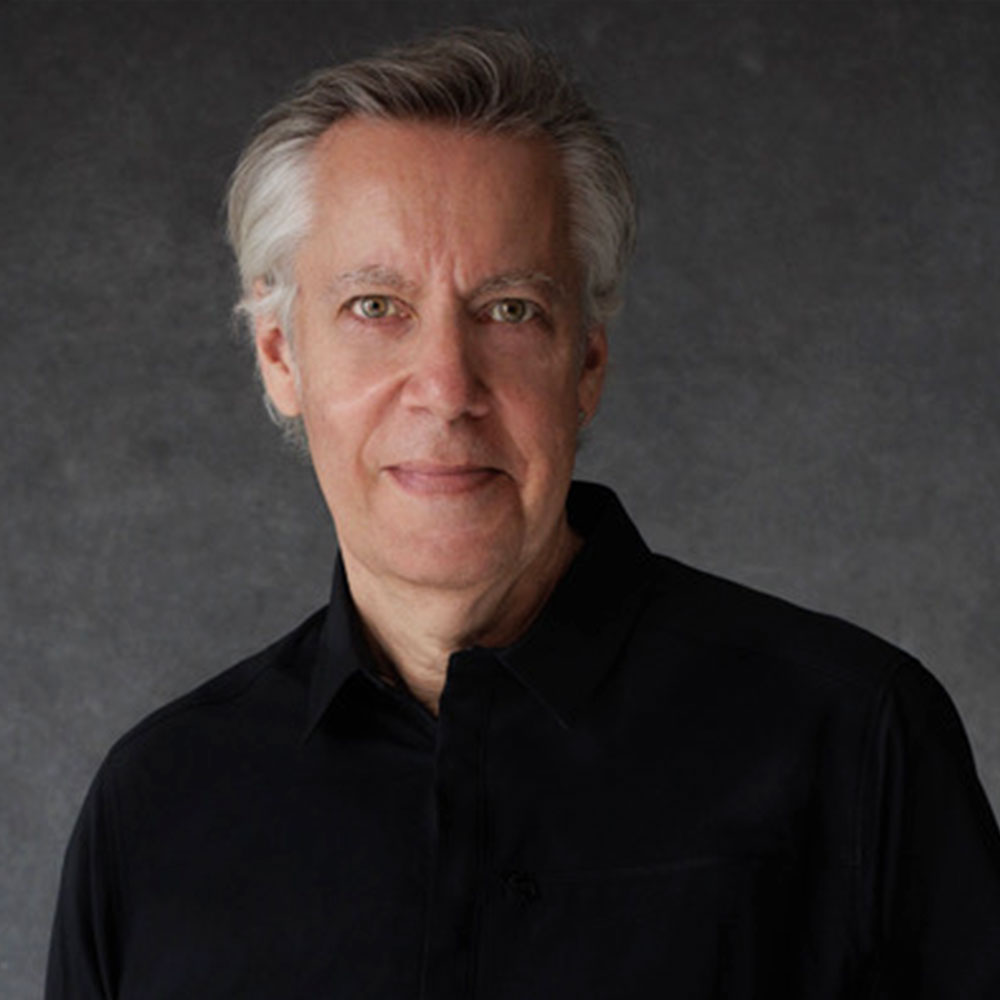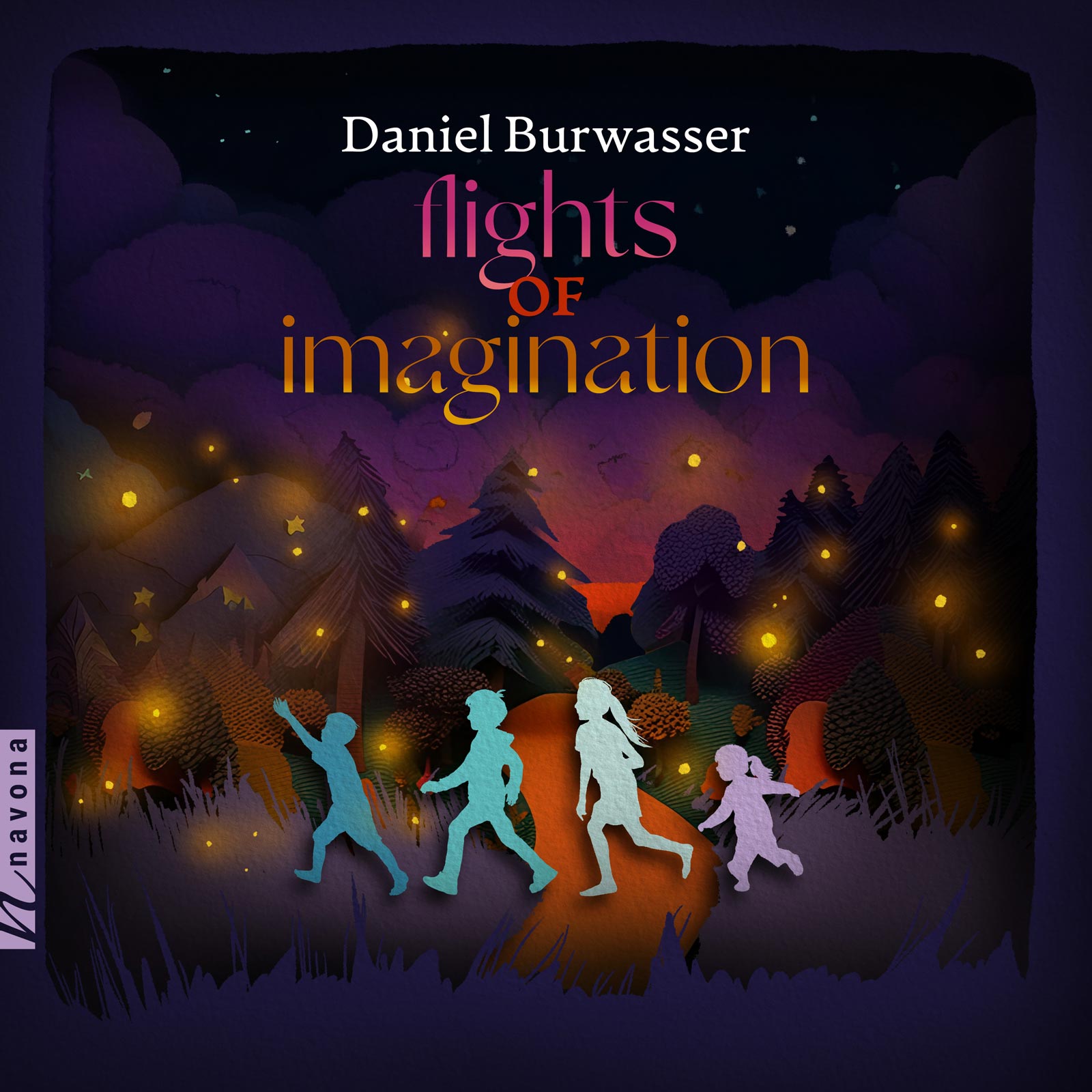
Daniel Burwasser’s music has been praised as accessible, communicative, and imaginative, descriptors encapsulated in the recordings of FLIGHTS OF IMAGINATION, a comprehensive release including some of Burwasser’s most beloved works. Burwasser provides no shortage of musical variety; the childlike wonder of Catching Fireflies is paired with the rhythmic, jubilant, and occasionally mystical qualities of Whirlwind, Flux, and Puck’s Game, while A Well-Traveled Road is a tumultuous and lively musical journey through lush, overflowing fields of orchestration.
Today, Daniel is our featured artist in “The Inside Story,” a blog series exploring the inner workings and personalities of our composers and performers. Read on to learn how writing cadences for marching drumlines kicked off his compositional journey, and why he believes “staying the course” is the best path to achieving your dreams…
What advice would you give your younger self if given the chance?
I know at a younger age one can fall prey to peer pressures and youthful indiscretions but I was always very serious about what I was doing and wouldn’t have been much more demanding of myself back then. Since I wasn’t easily swayed in the wrong direction, I just kept practicing, performing, listening, and studying scores on a regular basis. Music kept me afloat and solidly anchored during my youth so I was very fortunate to have it in my life. So any advice I would have given myself in my teenage years would have been simply to stay the course to become a professional musician and composer, because even though being a musician is a tough road, in the end there will be great joy in creating music that will hopefully give others pleasure. How satisfying of a life is that?
Take us on a walk through your musical library. What record gets the most plays? Are there any “deep cuts” that you particularly enjoy?
There are numerous albums that I have enjoyed for a long time from a huge variety of artists and composers. Most of my current top choices were first heard in my youth, some from when I was about 5 years old. To name just a few favorites, practically anything from J.S. Bach, Prokofiev or Stravinsky, but I also enjoy bands like Pink Floyd and The Beatles. A specific album from Pink Floyd I continue to revere is Wish You Were Here, which I first heard when I was in high school. I especially like the 6-part extravaganza, Shine On You Crazy Diamond from that album. Another one is The Beatles’ White Album which I have always liked overall for its broad eclecticism.
As a drummer, I also enjoy listening to a lot of jazz and fusion, so I can regularly be found listening to anything by Weather Report, The Jazz Messengers, Mahavishnu Orchestra, Miles Davis, early Chicago, and Jeff Beck to name a few. I also appreciate early progressive rock like King Crimson’s very innovative first album, In the Court of the Crimson King.
What emotions do you hope listeners will experience after hearing your work?
I don’t expect anyone to walk away with a single emotional experience as I don’t prescribe anything for the listener most of the time. I simply write what I like and feel at the moment I write it. Except for a few programmatic works, anyone who listens to my music can either react, or not be moved at all, although I would hope that most people will respond differently and even offer up different stories after the listening experience. Sometimes the sound of my music can be dissonant and chaotic, sometimes it’s deliciously lyrical, other times it can sound humorous or mischievous. But anyone can feel what they like after hearing my work.
What were your first musical experiences?
My first musical experiences came out of taking piano lessons at an early age. I recall my first piano recital at the age of 6 where I had my first real experience playing in front of a large audience. I don’t recall if I was nervous or not, but it was a thrilling thing to do. My parents always made listening to music an enjoyable part of my life.
I recall one particular experience during the time my mother was the personnel manager for the Binghamton Symphony when I was about 8 years old. She invited a couple of other kids and me to briefly act in a youth concert put on by the orchestra. We were placed on stage in chairs and pretended to fall asleep during the 2nd movement to the Haydn “Surprise” Symphony. Then we all abruptly fell to the floor upon hearing the famous loud dominant chord. This of course made everyone laugh. From that point onward, my musical experiences were mainly performing percussion in school bands, rock bands, and marching bands from my middle to high school years. I also wrote my first compositions during my middle school years. Those were drum cadences for our marching band drumline.
Where and when are you at your most creative?
I am most creative at home at my work desk, but I have found that I can work practically anywhere where it’s quiet and hence conducive to creativity. I am best in the early morning (with lots of coffee!) but can also work at all hours when necessary. I also take frequent outdoor walks (rain or shine) where I also get inspiration, especially in Central Park.
What musical mentor had the greatest impact on your artistic journey? Is there any wisdom they imparted onto you that still resonates today?
There were several people from various stages of my life who impacted my musical career; all of whom were my teachers. My middle school band director, Arden D. Wellington, is a man of tremendous musical gifts. I remember so much about him from that time, particularly how he taught me to properly play rudimental drum rolls and march in step. But he also gave me my first real composition experience, encouraging me to compose drum cadences for our marching band. That interest has lasted to this day. But actually, none of those memories brought me the sense of excitement I felt when after 40 years since last seeing him, he invited me to guest conduct the Kent County Delaware Senior Honors Band in 2015. That time we worked as colleagues which was a dream come true for me. I was thrilled to conduct a group made up of students, who like me, have greatly benefited from his wisdom.
My high school band director, Donald Marrs, was also a uniquely gifted educator. As a known taskmaster, I took advantage of that when it came to preparing for concerts and state contests. He not only taught me to play musically but also, he instilled a greater sense of discipline in my practice habits — so much so that he helped me earn percussion positions in the New Jersey Region I Wind Ensemble as well as the principal percussionist spot in the New Jersey All-State Orchestra. In graduate school, I had several notable composition teachers such as Charles Wuorinen and David Del Tredici. Even though these two were polar opposites in their teaching and compositional philosophies, I still gained valuable insight from their instruction.

Daniel Burwasser, born in New Brunswick NJ, is an American composer who has been writing and playing music since the age of 5. Originally a student of the piano, he eventually progressed to other forms of percussion, including drum set and orchestral percussion. He received his Bachelor’s degree from Temple University, a Master of Arts degree from Rutgers University, and his Ph.D. in Composition from the Graduate School of CUNY. He is a recipient of grants from both The American Music Center and Meet the Composer.

